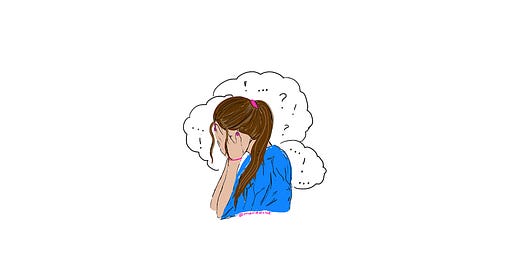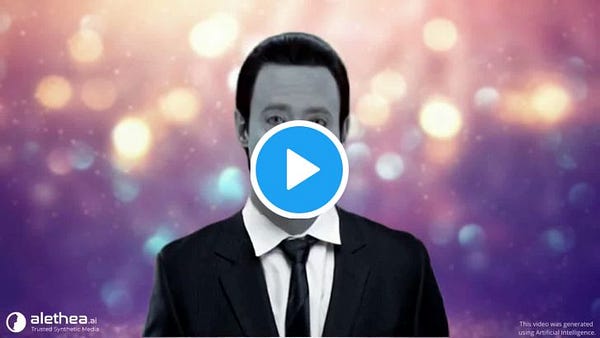1.8 million: the number of Google searches for the term "anxiety." Worlwide. In September 2020. And this query is up 20 percent in one year. Should we worry about it? With the health crisis in full swing, is our mental health taking a nose-dive? How does this affect our use of technology? Let's dive in.

Mental health tech start-ups speed up, everyone follows suit!
How can we remain relaxed when the world is uncertain, uncontrollable, crazy? A first solution can be found digitally: there are over 10,000 apps on the market! It comes as no surprise — estimated at 2.3 billion dollars in 2022, up 14 percent per year, the market is dynamic. Broader, the wellness market, is abundant. In B2C: Sleeptech with brands like Dreem or Smartsleep ; meditation and wellness applications like Calm or Headspace, online psychologists with platforms like Advekit and Talkspace, etc. The trend is also spreading to the business world with numerous services to support employees like Moodwork or Betterspace.
However, this does not mean that we should sink into "technology solutionism." All big players are trying to help their users by stepping up awareness and support actions. Reddit is working with Crisis Text Line to offer free, confidential assistance to users having difficulty. Google has launched a clinical questionnaire for all users looking for information on anxiety, Snapchat has introduced "Here for you," a search tool listing mental health resources for those exploring topics such as anxiety, depression, etc. Dropbox offers digital care packages, including artwork and recipes; Netflix airs a series on Instagram that focuses on taking care of your mental health during the pandemic while Spotify schedules The Daily Wellness, a zen and feelgood playlist.
Wary of GAFAM and their intentions? You can always find comfort with a special class of influencers: TikTok and Instagram therapists. Substacker Patricia Mou has listed over a hundred of them in this Airtable. A few unusual examples? @notesfromyourtherapist, which presents the note-taking of a shrink in session or @colietaicolcsw, a therapist who shares messages for the child inside you.
Let's bet that the trend will continue to take root and become the main editorial focus of content marketing strategies for brands wishing to reassure their communities. Take a good look at the subtle shift from "love brands" to "psychological brands"... More on that soon.
Say hello to the social media expressionist apps
Often restricted to beta versions for a happy few, the trend is not yet shining brightly, but it remains significant:
Notice the increase in unusual social media apps generally described as "nostalgia apps" or "digital impressionism" (Monet must be spinning in his grave). In my opinion, there is a terminology error; it would be more appropriate to speak here of expressionism, which affects many fields when impressionism only concerns painting. Moreover, expressionism isn’t just painting a scene at a glance, it’s directly focused on the emotional response to a situation. In other words, it’s interpreting a subject matter from the point of view of internal feelings. Some examples of apps emerging:
Trash app creates a vibe check, a kind of mood board video to unveil your feelings more easily.
E.gg intends to unleash everyone's creativity; let's point out in passing that it is a service from Facebook's "New Product Experimentation" division whose mission is to initiate new consumer-oriented applications around specific use cases.
One last one for the road? Monet, still in beta, promotes next-generation dating with the following tagline: "draw your way to love." Quite a program.
Another booming area: audio. What could be more intimate and expressive than the voice? Earlier in October, The Information confirmed the trend by highlighting the increase in audio start-ups as investors look for the next Clubhouse. Here, moreover, the trend can be observed in B2B as well as in B2C.
In B2B, and I've already told you about it, Yac intends to provide a solution to Zoom Fatigue by positioning itself as the perfect asynchronous audio app for working with colleagues.
As you understand, the use cases are growing. Social audio has not yet said its last word.
Anti-blue light and other health/beauty considerations
Source: Graph Trends Everywhere
There is another facet of anti-anxiety consumerism. For some time now, we’ve had a new enemy to fight: blue light. This is not the sun's light, but the light that radiates from our screens, tablets and smartphones that threatens our eyes, our mood and our skin on a daily basis by causing oxidative stress, among other misdeeds. To protect ourselves, there is a wide range of products and care: adapted glasses, screen filters, premium eye drops, face care (an unstoppable weapon against the dermal aging caused by the sun) ... yes, marketing considerations are never far away.
This is only a tiny segment of a broader trend called "Dopamine Detoxing," in reference to a dedicated subreddit. Objective: to neutralize most of the modern world's technological stimuli in order to live a more sober, or even minimalist existence. A marketing opportunity? How about specific "reset" food supplements? Natural supplements are currently on a roll to help us get through the health crisis and its frustrations. Let's mention CBD (1.8M searches worldwide in September), a molecule of the cannabinoid family used to soothe pain, anxiety and inflammation. Initially used in the form of oil to be diluted under the tongue, it is now found in sparkling health drinks and gradually being integrated into other everyday foods in the near future. Same things for adaptogens such as rhodiola (135K research worldwide in September). Mushrooms, very popular with fitness influencers, are now available in the form of drinkable chocolate. Could there be an adaptogenic water or anti-stress apple sauce tomorrow?
Everything to embrace calm and restore your mind can be imagined.
Fighting against loneliness with companions, four-legged ... or virtual
In April, Wamiz, the publication dedicated to pets in Europe, announced a record of 2.9M hits on its "Adoption" section and an equally notable increase on breed lists. The explanation is simple: during lockdown, people were preparing to welcome a pet. It is now confirmed! Adoptions have resumed well and have even increased by 10 to 15 percent in some countries such as France. Willingness to fight loneliness? The relationship of pet owners with their little companions has evolved, they are now considered full-fledged members of the family. The pet owners no longer hesitate to spend money, the market is estimated at five billion euros in 2020. Rich in opportunities, it innovates, offers new segments and is growing considerably — connected litter, holistic pet food, luxury brands, etc.
Let’s also note how new digital gathering places are emerging to create links and strengthen the feeling of belonging: witness the growth of gaming and vertical community approaches, or the development of avatars in the wake of immersive technologies.
Teooh allows you to create a virtual office, with colleagues as avatars. Imagine the use cases in the field of culture, cinema and entertainment, the new sensations of closeness with a celebrity, someone you admire.
A few months ago, I mentioned the holotelists. Don't look it up in the dictionary, it's a neologism of my own, inspired by the term "philatelist." The philatelist collects stamps? The holotelist collects ... holograms. You doubt me?
Download the Jadu application, which creates and sells holograms of artists with whom you can sing and dance. According to the founder, not only is it very useful to promote young talent, but it is also an intense way to socialize this experience: no more passively listening to a musician, you download his hologram to dance with him in your living room. A clever way to fight loneliness.
Another example: Alethea AI presents itself as a studio of AI avatars ... with the possibility of generating a huge "market" of artificial faces of users, famous or not, but whose power to "influence" will not be negligible. The subject is certainly sensitive ... but nevertheless promising.
These few examples are only a tiny part of the iceberg. If you dig a little deeper, you will see that confirmations, pivots and new uses are numerous. There are so many new opportunities to be seized in a gloomy and anxiety-provoking context. A kind of light at the end of the tunnel? In any case, a common and clear message: use your time wisely because tomorrow is being built now.
Until then, stay warm ... and curious!
Marie
💎 Snippets & other curiosities
💭 The future of business: Reimagining 2020 and beyond. Read Here.
💡 The Tyranny of ideas. Read Here.
🌟 A compilation of David Perrell’s best links. Read Here.















Fantastic 👌
Thank you Marie. I always find something new and worthy in your issues. (In this case Yac app among others)
Your newsletter is among the few ones that I read till the last word of it.
My gratitude to you and my respect to your hard work.
Your curation skill is very good.
Peace ✌️